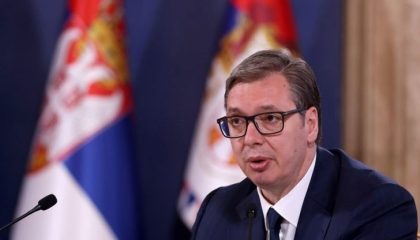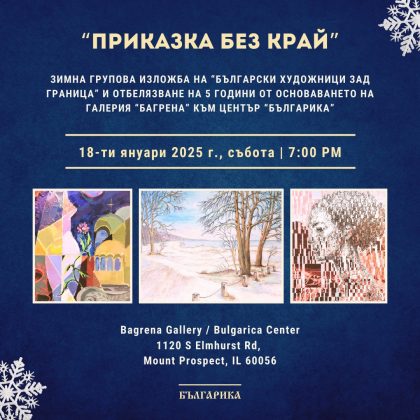Българите са третата най-голяма имигрантска група от европейски граждани в рамките на Европейския съюз.
Това сочат данни на Евростат (Eurostat).
На първо място са румънците, като най-много от тях живеят в Италия и Испания.
Според данните за 2008 г. от общо 2 млн. имигранти в ЕС, румънците са 384 хил.
Следват поляците, които са 266 хил. души, и българите – 91 хил. души.
Според статистическата служба на ЕС, към вътрешна миграция в границите на 27-те страни членки са били склонни и германците, французите, британците, унгарците, холандците и португалците.
През 2008 г. в страните от Европейския съюз отвън са пристигнали 1,8 млн. имигранти, от които 157 хил. са пристигнали от Мароко, 97 хил. – от Китай, 93 хил. – от Индия.
Значителен брой са дошли и Албания, Украйна, Бразилия, Америка, Русия, Турция и Колумбия и други страни.
Сред пристигналите в ЕС имигранти преобладават младите хора, като средната им възраст е 27,5 години.
По същото време 2,3 млн. души са напуснали страните от ЕС.
Източник: БТА

–––––––––––––-
Млади, образовани, но без бъдеще в родината си
Млад, мотивиран, високо образован, но… безработен – тези думи описват съдбата на много млади хора в България. Но не само там – десетки хиляди италианци, гърци, ирландци напускат обеднялата си родина …
Поместваме с малки съкращения събраното от няколко последователни материали на Дойче Веле с автори: Е. Лилов, Г. Елферс, Б. Рачева, Б. Емануилов и др.
Италия:
Младите италианци отдавна са зачеркнали думата „бъдеще“ от своя речник. Те са твърде заети да се борят с настоящето. Безработицата расте, а особено засегнати са именно младите. Всеки четвърти младеж е без работа.
В днешна Италия твърдите работни места със социална закрила са рядко изключение. Частните фирми, но също и общински и държавни служби назначават само на временна работа. Да не говорим, че според Италианската търговска камара 85 процента от свободните места се разпределят с връзки или подкупи.
При това положение за мнозина младежи единственият изход е да заминат в чужбина. Впрочем, става дума не за обикновени работници, а за хора с квалификация и образование. Ето какво казва журналистът Серджо Нава от реномирания вестник „Соле 24 оре“:
„Отдавна вече у нас се говори за brain drain. В чужбина обаче ми стана ясно, че емигрират не само учени, но също адвокати, инженери, лекари и музиканти. Не защото искат да покорят света, а поради липсата на перспективи в Италия. Става дума за едно масово явление.“
Италия е на път да изгуби елита на своето бъдеще. А страната се нуждае най-вече именно от младото поколение, напомня професорът по демография Алесандро Розина: „Парадоксът е, че ние имаме твърде малко млади хора, но едва ли в някоя друга страна третират младите така зле, както тук. Далновидните политици би трябвало да разберат, че е наложително да инвестираме тъкмо в младежта, например в нашата прогнила образователна система.“
Вместо това старите бранят привилегиите си за сметка на младите: те са си осигурили добри заплати и пенсии, завещавайки на следващото поколение огромен държавен дълг. Професор Розина смята, че промяна е възможна едва след около 10-15 години – когато старото поколение слезе от сцената. Тогава интелигентни млади хора биха могли да поемат управлението на Италия и най-сетне да я модернизират.
Матео е прототип на младия европеец, който напуска – може би завинаги – разтърсваната от криза родина. Той е млад, мотивиран, гъвкав и перфектно образован. Матео казва, че никога вече не иска да се върне в родна Италия. Експертът по телекомуникационни технологии е родом от Рим, а мечтата му е да се занимава с изследователска дейност. Матео казва: „След като кандидатствах безброй пъти за работа, ми стана ясно, че ако не познаваш правилните хора, в Италия нямаш никакъв шанс.“
Хиляди загърбват родината
Така Матео си опакова куфара и сега работи в Техническия университет в холандския град Айндхофен. „Не може да става и дума за сравнение с вкостенялата, непотична университетска система в Италия“, писа възторжено той в блог на вестник „Република“. От месеци римският всекидневник подканва италианци по цял свят да разкажат историята си онлайн. Почти 25.000 души откликнаха на необичайната анкета, която има за цел да представи живия образ на онези „невидими емигранти“, които от години на тълпи напускат Италия.
За броя им няма точни данни. От актуално изследване на германската фондация Бертелсман става ясно, че никоя друга от 15-те „стари“ страни-членки на Европейския съюз не е изгубила през последните 5 години толкова много учени, колкото Италия. Резултатите от анкетата на вестник „Република“ показват, че повечето хора, загърбили родината си, са на възраст между 25 и 40 години.
В това отношение Италия се превърна в негативен пример в европейски план, и то по собствена вина. Инвестициите в науката и изследователската дейност са далеч под средното равнище в Европейския съюз. Италианските университети страдат от връзкаджийство и бюрокрация. За професионален напредък няма почти никакви шансове. Младите учени печелят около 1.000 евро на месец, и то след дългогодишен стаж.
–––––-
Ирландия:
Заедно с кризата в Ирландия се връща и една тъжна традиция, белязала живота на острова векове наред – емиграцията. Най-вече младите хора напускат страната, за да търсят работа и по-добро бъдеще в чужбина.
Дори в Кънтри Кери, където Ирландия все още изглежда като Ирландия, белезите на времето вече се виждат: Строителни развалини, празни останки от раздутия строителен бум, който бе основната причина за срива на ирландската икономика. В южната част на острова отдавна вече не се строи. Лоши времена за хора като семейство Кармоди. От 30 години Гобне и мъжът й Винсент имат фирма за щукатури. Само че кризата не ги е отминала:
„От 12 служители останаха само двама. По-рано нещата вървяха отлично. Имахме поръчки в цялата страна, даже в Лондон и в Америка. Можеше да ни сполети и по-лошо, но все пак сега всеки ден чакаме за поръчки и се надяваме, че ще можем да задържим поне двамата си сътрудници.“
Патрик, синът, пръв изгубил работата си във фирмата на родителите. Двамата Кармоди поставят лоялността към дългогодишните си сътрудници над семейството. Още в началото на започващата криза Патрик напуска фирмата и заминава за Австралия, там бързо намира работа. С родителите си се свързва чрез интернет:
„Живея близо до плажа и времето винаги е хубаво, тук човек може да отгледа децата си. Но сърцето ме тегли към родината, липсват ми приятелите, липсва ми семейството ми“, казва Патрик.
Той не е единичен случай. Процентът на безработица е близо 14%. Резултатът: безпрецедентна емиграционна вълна. За пръв път от 15 години насам все повече ирландци обръщат гръб на страната си и търсят работа другаде. Това са главно младите хора, добре образованите, мобилните. Някои заминават завинаги. Зад граница е по-добре…
„Не знаем дали тези хора ще се върнат. Ирландската икономика няма да се съвземе през следващите няколко години, прогнозите са лоши, бюджетните проблеми няма да бъдат решени тъй скоро. Затова е сигурно, че тези хора ще останат в чужбина, додето печелят там добри пари“ – казва експертката Катрин Каванах.
И Гобне Кармоди знае, че едва ли ще види скоро сина си: „Не вярвам, че ще се върне скоро. Може би, ако положението малко се подобри, но не и през следващите пет години. А и защо да се връща – тук няма работа.“
Сигурно засега е само едно: когато един ден емигрантите започнат да се връщат, поне няма да има жилищна криза.
–––––––––––
Испания:
30-годишен, с три магистърски титли и трудов стаж – тази визитна картичка би трябвало да гарантира стремглава кариера. Но времената са сурови, и то не само в България. В Испания например над 40% от младите са без работа. 200000 испанци са напуснали родината през последните 3 г.
Проклятието да си млад
Артуро Флорес си е представял другояче своето бъдеще. Той наближава 30-те. Завършил е публицистика и e журналист по професия. Има и още две магистърски титли. В тази студена зимна сутрин, както толкова често, още от осем часа той се е наредил пред инспекцията по труда на опашка, която се вие чак до ъгъла на следващата улица в центъра на Мадрид. До преди две години младият мъж е бил на работа в една пиар-агенция. Но бива уволнен. Оттогава е безработен и се опитва да се задържи на повърхността с обща работа на черно.
Този млад журналист принадлежи към възрастовата група, която вестник „Ел Паис“ кръсти „поколение нула“ – заради нулевия шанс на испанските младежи на пазара на труда. Тежката икономическа криза и безработицата от 20 процента съсипаха перспективите на младите хора. „При толкова скорострелно ликвидиране на работни места подрастващото поколение е най-уязвимата общност“, заявява Сантос Руесга, професор по приложна икономика към автономния университет в Мадрид.
В предишните години на икономически бум испанският трудов пазар създаде неимоверно много нови работни места. В кризата обаче онези, които като последни са били интегрирани в трудовия процес, бяха уволнени най-напред. Над 40 процента от испанските младежи под 25-годишна възраст са понастоящем без работа. Мнозинството млади хора в Испания и без това работят на базата на срочни трудови договори, които с оглед на сегашната конюнктурна мизерия биват продължавани само в редки случаи. Дори за отлично квалифицирани висшисти е трудно да се задържат на работа.
Още по-голям е ударът за онези, които нямат никаква професионална квалификация. През последните години мнозина от тях печелеха добри пари в строителството. Днес те спадат към най-големите губещи в кризата. Един такъв случай е 20-годишният Карлос Фернандес. Допреди година и половина, като зидар, той е бил търсен кадър. Сега обаче той принадлежи към армията от безработни, които стоят на опашка пред мадридската служба по труда.
Млади, но без перспектива
„На строежа, разказва Фернандес, общите работници печелеха по 1.500 евро на месец”. Затова преди години той си казал, че няма смисъл да се блъска да учи. Едва дочакал да стане на 16, задължителната в Испания училищна възраст, Фернандес напуска училище, както впрочем и 32-процента от младите испанци – двойно повече, отколкото е средният за Европейския съюз индекс. Сега това се връща като бумеранг, защото навсякъде, където почука за работа, му искат поне завършено училищно образование.
Други пък отдавна вече са приключили с търсенето на работа в Испания. 200 хиляди испанци, предимно млади, през последните три години избраха пътя на емиграцията. За разлика от испанските емигранти от 60-те години на миналия век, новото поколение испански преселници е високо квалифицирано. Най-вече млади инженери и архитекти, т.е професионални групи, които са особено остро засегнати от конюнктурния срив, водят листата на онези, които по неволя обръщат гръб на родината си.
––––––-
Гърция
Сходно безнадеждна е ситуацията и в Гърция. Година след година страната губи над 6.000 топ-специалисти. Кризата в банкрутиралата страна влоши положението още повече. „Изтичането на мозъци не е някакъв нов феномен. Кризата обаче ускори този прцес“ – посочва Луис Лабрианидис, професор в македонския университет в Солун.
Спасение на Острова
Англия знае как да привлече млади специалисти от чужбина
Статистиките показват, че от началото на годината заявките за работа в чужбина са се увеличили с цели 20 процента. Гърция напускат главно млади специалисти от средното съсловие. Повечето от тях няма да се върнат обратно. Главната цел на напускащите родината си гърци е Великобритания. Островът привлича също и стари познайници от съседна Ирландия. Млади ирландци с висше образование напускат масово тежко засегнатата от кризата страна, която до неотдавна бе наричана почтително „келтския тигър“.
Загубата на хиляди топ-специалисти ще има за Италия, Гърция и Ирландия тежки икономически последици. Великобритания обаче, която „приютява“ голяма част от тези високо образовани хора, извлича само ползи. Страната знае това и подхожда подобаващо към чуждите специалисти. От край време британските университети следват офанзивна стратегия за привличане на високо образовани млади хора от цял свят, казва проф. Лабрианидис и допълва: „Те инвестират в млади научни кадри, тъй като знаят, че един ден това ще донесе дивиденти. И преди всичко – подчертава гръцкият професор – на тези млади хора се дава чувството, че са уважавани и ценни.“
––––-
Българската армия от гурбетчии
След несъстоялото се (в разгара на кризата) завръщане на българите от Испания, Италия или Великобритания, сега българските управници се опитват да ни убедят как все по-малко българи вече напускали страната, и как все повече чужденци кандидатствали за българско гражданство. Но услужливо се пропускат следните факти: че и повече българи в чужбина кандидатстват за чуждо гражданство (например в Германия); че българите във Великобритания са все по-уседнали на Острова; и че при „американските“ българи се наблюдава тенденция към трайна натурализация.
http://www.dw-world.de
––––––––-






Recientemente, leí tu sitio para casi 2 meses, están actualmente volver
a parásito, Felicidades, usted eternamente tiene
la misma calidad, esta vez se evasión durante la lectura y aprobar tal lector!
Anexionar a Favoritos
http://www.nature.com//news/2011/110112/full/469142a.html
When Bulgaria and Romania joined the European Union (EU) in 2007, ambitious scientists there hoped that it would swiftly disperse the lingering legacies of 40 years of communist rule. Science had been blighted by a lack of competition, minimal funding and an old guard so desperate to cling on to its privileges that fresh blood was denied the opportunity to build a research career.
Four years later, these neighbouring cash-strapped countries on the southeastern edge of the EU remain close neighbours at the bottom of EU league tables of research expenditure and research output statistics (see \’The spending gap\’). But their scientific fates may be set to diverge dramatically.
Last year, Bulgaria slashed the budget of its Academy of Sciences by 38% to 60 million leva (US$40 million), forcing some scientists to take unpaid leave. It reportedly reduced the budget of its granting agency by more than half, and will maintain those funding levels in 2011. It is also poised to make organizational changes that scientists fear will foster mediocrity.
SOURCE: EUROSTAT
Over the same period, Romania has trimmed funding of the Romanian Academy by just 3%, and increased the budget of its granting agency by 44% to 1.5 billion lei (US$0.5 billion). In a drive to improve the standard of Romanian science, the government last week approved a hard-won law that enforces strict quality control on universities and introduces tough rules for funding evaluation and peer review.
Romanian scientists working outside the country say that the changes give them hope of some day being able to continue their research careers back home. Meanwhile, the Bulgarian diaspora despairs.
These opposing outlooks show how joining the EU does not guarantee a successful scientific transformation, despite the access it offers to outside money and expertise, and the EU\’s focus on innovation. For science to flourish, national political will is crucial.
A tale of two countries
After Bulgaria and Romania became democracies in 1990, both attempted to reform their research organizations and universities along Western lines. Early on in the process, they gave autonomy to their respective scientific academies, learned societies that also run extensive networks of research institutes and that were under state control in Soviet times. But little reform accompanied that autonomy, a matter of political concern for many years.
In November 2010, the Bulgarian science and education minister, Sergei Ignatov, proposed an amendment to the law governing the Bulgarian Academy of Sciences (BAS) that would bring its institutes back under the control of the ministry, with each institute funded separately, leaving the academy as a learned society. The amendment, expected to be approved in the next month or so, does not outline how the ministry would safeguard the scientific objectives of the institutes. Scientists fear that the institutes will be closed or deprived of the opportunity to do internationally relevant research.
Enraged BAS scientists were already reeling from the 38% annual budget cut, part of a government-wide austerity programme, which targeted science in particular. They took to the streets in weekly demonstrations, and have since launched an online petition, which has been signed by more than 7,000 scientists around the world, including eight Nobel laureates and five recipients of the mathematics Fields Medal. Peter Gruss, president of Germany\’s Max Planck Society, has written directly to the BAS president offering moral support.
\"I worry most about keeping our young scientists,\" says Tsvetan Dachev, a space scientist at the BAS Space and Solar-Terrestrial Research Institute in Sofia. \"They earn just €175 [US$227] a month, not enough to live on.\" Last year, 670 scientists left the academy and were not replaced — 460 retired and most of the rest were young scientists who no longer see a future there.
Things are not much better at Bulgaria\’s universities, which will see an overall budget cut of 21% to €170 million this year compared with 2009. The large and research-intensive University of Sofia — which alone generates 30% of Bulgaria\’s scientific papers and patents — has to cope with a 23% cut in its 2009 budget to €18 million. \"This is creating tensions between faculties, which are now fighting over tightened resources, and it\’s not pleasant,\" says Georgi Vayssilov, a chemist at Sofia. \"Faculties such as chemistry and physics need more money for teaching, but our income is based on student number, so we are suffering a lot.\"
Vayssilov, like most of his colleagues, is also concerned about a law approved last month that allows universities to make their own rules for academic appointments and offers no guidelines or criteria. Consequently, one university might only appoint professors with strong publication lists, he says, whereas another might decide a couple of negligible publications would suffice, opening the door to cronyism.
Meanwhile, the country\’s granting agency, the National Science Fund, put out no general calls for proposals last year, and funding of some ongoing projects has been stopped or reduced. No new calls are expected this year.
Tough battle
Until recently, scientists in Romania were in similar despair. In 2008, the country slipped into recession, and the unstable coalition government slashed the 2009 research budget by nearly 50%. But the next coalition government, which came into power at the end of that year, took a different view: a huge budget hike this year comes close to returning research spending to 2008 levels. Unlike Bulgaria, Romania is continuing to bolster its research infrastructure, using EU structural funds for regional development.
Daniel Funeriu: “Winning this battle was tougher than any chemical synthesis I have done.”R. CHIRITA/MEDIAFAX FOTO
Crucially, the country is introducing legislation to ensure the new funding is spent well. Research and education minister Daniel Funeriu, a former research chemist who spent most of his adult life abroad, championed an extensive and detailed education law that brings nearly all aspects of university governance, academic hiring practices, evaluation and guidelines for good scientific practice — complete with penalties for academic misdemeanours — into line with other European countries.
The law expressly forbids nepotistic appointments, and also bars rectors from concurrently holding other positions of power that may pose a conflict of interest, such as being a member of parliament. \"If these things didn\’t happen, we wouldn\’t have had to write them into the law,\" says Funeriu.
The draft law met huge resistance in parliament, in large part owing to the influence of several members who are also university rectors. The parliamentary education committee was particularly offended by a paragraph stating that the first round of quality assessment for universities must be done by foreign scientists. In the end, the government decided to force the bill through parliament with a vote of confidence, bypassing some of the parliamentary procedures that were blocking it. After being endorsed by the country\’s constitutional court on 4 January, the bill became law.
The government is now launching schemes to bring Romanian science into the international arena. In 2010 the country became a full member of CERN, the European particle-physics facility near Geneva, Switzerland, and also became a founding member of two major European facilities: the Extreme Light Infrastructure, which will develop the world\’s most intense lasers to study matter at high energies, and the particle accelerator Facility for Antiproton and Ion Research in Darmstadt, Germany. This year it is also planning to launch a twinning scheme, which would allow scientists working abroad to set up a parallel lab in Romania. That way they could contribute to science in Romania without having to risk leaving a good job elsewhere; and local staff would benefit from greater contact with international science.
Funeriu says that it has been a hard fight to get to this stage, but he is now optimistic for the future of Romanian science. \"Winning this battle was tougher than any chemical synthesis I have done,\" he says.